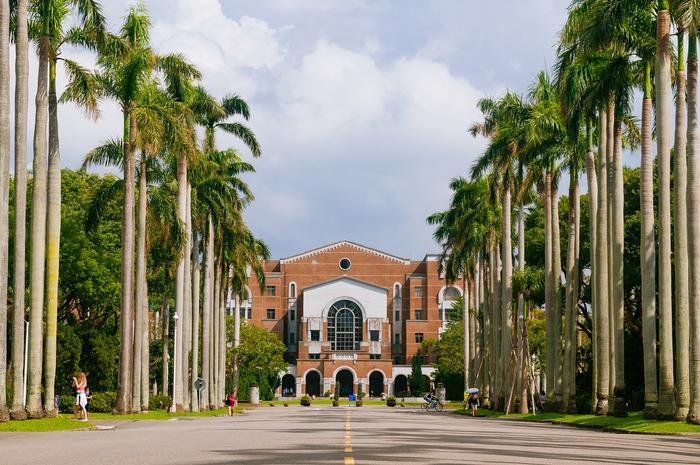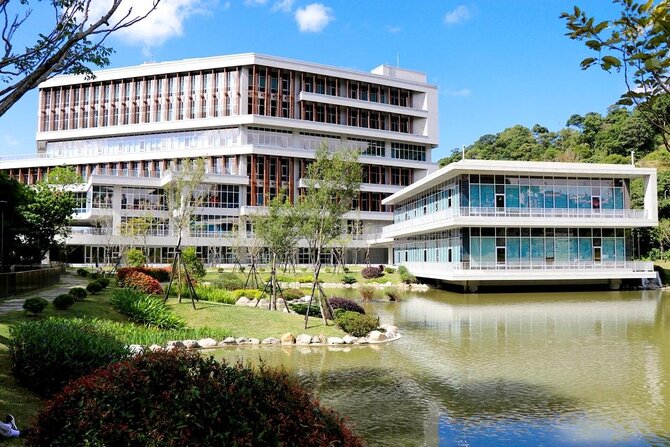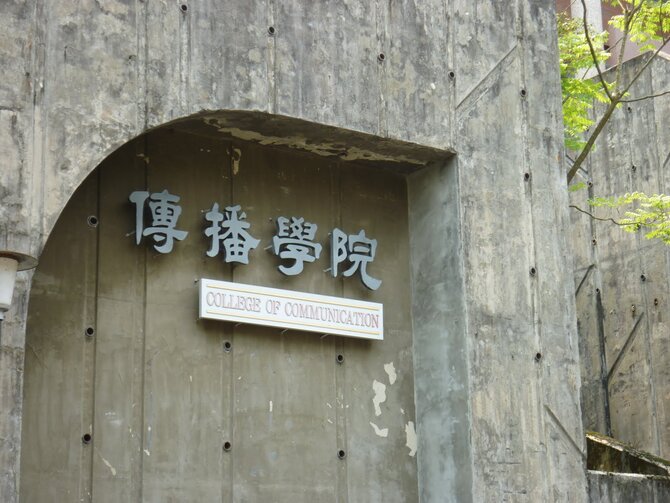Jointly reported by:
Grace Low Shing Wei Sr1ScA
Chloe Eu Ji Chen Sr2A
Tham Yuanyi Sr2A
Picking universities is a hard decision for many Senior students, especially if one is considering studying abroad. Hence, on the 19th of May 2021, the Counselling Department of Kuen Cheng High School invited Yeo Pei Cheng and Vicky Khoo, both alumni of the school, to share their experiences as students studying abroad in Taiwan with our fellow Senior Middle 1, 2 and 3 students.
The session officially started at around 3:05 pm. First, the teachers introduced the attending students to the two guest speakers of the day, before requesting everyone to turn on their cameras for a group photo. After that, they allowed the first speaker, Pei Cheng who’s currently studying in National Taiwan University (NTU), to share her story.
Pei Cheng has been interested in Economics since high school. Initially, she meant to study Finance but was unable to apply for that course, so she decided to major in Economics. Pei Cheng enjoys the Economics course NTU offers due to the variety of related subjects being taught to her. Students are allowed to study in specialised fields as early as their first year. According to Pei Cheng, students there are not restricted to only compulsory courses; she had to take Calculus, Macroeconomics, Microeconomics, English, and Chinese as compulsory courses in her first year. However, students can freely register for other elective courses such as Economic History, Accounting, and more. The minimum number of credits one must achieve is 15, whereas the maximum amount of credits is 25.
Next, Pei Cheng introduced us to her University and its surroundings. NTU is a university in Taipei with a long history. It is also located at the opposite side of Gongguan Night Street, where you can enjoy many culinary delights. Therefore, she believes NTU is the optimal solution for overseas university to enroll in.
 The delicacies of Gongguan Night Street
The delicacies of Gongguan Night Street
Besides that, the fees at NTU are relatively inexpensive, only costing just a bit over NT$38,000 (RM5,655) per semester. Pei Cheng also brought up the steps to apply for low-income scholarships, should anyone need them. Firstly, one must apply from the high school a letter certifying low family income. After that, one must make a separate scholarship application at the university’s website. After reaching Taiwan, one must approach the university’s relevant department to verify the application.
Pei Cheng had some advice for the Senior students who are considering enrolling in NTU. She first reminded them to apply for a travel Visa and scholarships before travelling to Taiwan. She also mentioned that when selecting NTU courses, they should find reviews about their lecturers and details about examinations. For this, she recommended websites such as PTT and Dcard. Lastly, she said that if they pass either IELTS, TOEFL or TOEIC, they can apply for exemption in taking English course in their first year.
Furthermore, she provided us with important documents that the students may encounter as freshmen in NTU, as listed below:
Online selection course website: 台大課程網課程查詢 (ntu.edu.tw)
Overseas Chinese Students' Admission Notice for the 109th School Year: welcome.pdf (ntu.edu.tw)
Freshmen's Procedures Checklist for the 109th School Year: 國立臺灣大學新生暨轉學生入學服務網 (ntu.edu.tw)
Moving on, Pei Cheng said that her current favourite place is Wenzhou Street, located near NTU. There are many cafes on both sides of the street, which is a suitable spot for her to do revision.
Besides being an Economics major, Pei Cheng is also a member of the varsity rugby team in her school. She said the team is like a family to her. So, she encouraged the Seniors who intend to study in NTU to join the school’s rugby team.
Before ending her talk, she showed us some photos of her hostel and campus. The hostel has a public bathroom; thus students need not clean the bathroom themselves. However, one downside is that the hostel rooms are quite compact. Lastly, Pei Cheng advised us to own a bike if we want to study there, as it can be a pain to walk back and forth from the hostel and the campus.
 |
 |
The next person to speak was Vicky from National Chengchi University (NCCU), who is majoring in Mass Communication. She started off by talking about her university and why she chose it. NCCU is known as “Asian Harvard” because their acceptance rate is very low compared to other universities. It is also one of the top national universities for humanities in Taiwan. Unlike other universities that are located in the city, NCCU is located in a more rural area near the mountains in Taipei.
Students are encouraged to double major and participate in international exchange programs by the principal. In the first and second years, students are provided an undeclared major, but they can decide what they want to specialise in their third year. In the first and second years, students will study six courses, which are Introduction to Communication, Communication and Society, Communication and Contemporary Trend of Thoughts, Data Collection, Static Design, and Basic Audio and Video Production. They get to choose from three different specialisation options in the third year, which are Advertising, Broadcasting and Film, and Journalism. Lastly, the fourth year is an elective course in which students need to choose whether they want to do their graduation project.
The university places an equal amount of importance on both theory and practical courses across all majors. It also provides many professional internship opportunities within the campus. She introduced some of the internship platforms in her school, which are the NCCU Radio Station, NCCU News Lab, NCCU Theatre, Audio Video Lab and ITLAB. These platforms allow students to gain work experience and apply their skills in real-life situations.
After talking about the course in her university, Vicky showed us some photos of her campus. She said there is a huge difference in the appearance of the university’s College of Communication compared to its other campuses. Although it does not look as fancy as others, Vicky still loves her campus. She then shared some of her Instagram stories about her campus life. She introduced her school’s library, Dah Hsian Seetoo Library, which is well-known for being the most beautiful library in Taiwan.
 NCCU’s College of Communication, and Dah Hsian Seetoo Library
NCCU’s College of Communication, and Dah Hsian Seetoo Library




